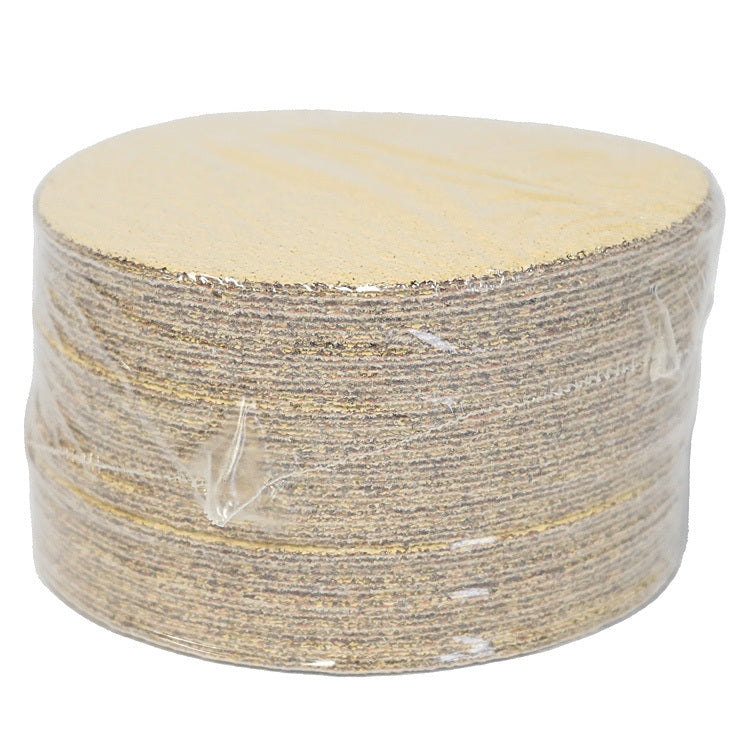5" Gold Hook and Loop A/O Sanding Discs - 40 Grit - 50 Pack
Details
Details
5" Gold Hook and Loop A/O Sanding Discs - 40 Grit - 50 Pack
Fibre Glast's Gold Aluminum Oxide Hook and Loop Sanding Discs offer great performance. These discs have premium, gold, heat-treated aluminum oxide grains resin bonded to a heavy-duty, C-weight backing. Each disc features a load resistant stearate coating to extend the life of the disc by eliminating clogging during use. We offer 5" discs in 40, 80 and 120 grits.
Aluminum oxide sanding discs are commonly used for sanding and finishing operations on a variety of materials, including fiberglass composites. Here's what you need to know about using aluminum oxide sanding discs with fiberglass composites:
- Material Compatibility: Aluminum oxide sanding discs are generally compatible with fiberglass composites. Fiberglass composites typically have a resin matrix that can be effectively sanded using aluminum oxide abrasives. However, it's important to ensure that the specific resin used in the composite is compatible with aluminum oxide.
- Grit Selection: Aluminum oxide sanding discs are available in various grit sizes, ranging from coarse to fine. The grit size you choose depends on the nature of the sanding task and the desired surface finish. Coarser grits (e.g., 40, 80 or 120) are suitable for rapid material removal and shaping. Consider using our Pai Boat Polishing Compounds for achieving a smooth finish. It's often beneficial to use a progression of grits, starting with a coarser grit and gradually moving to finer grits for optimal results.
- Surface Finish: Fiberglass composites may require a smooth and even surface finish for aesthetics or further coating applications. Aluminum oxide sanding discs can help achieve this desired finish, especially when using finer grits. However, it's important to note that fiberglass composites can be prone to fraying or damage to the fibers during sanding. Using light pressure and maintaining a consistent sanding technique can minimize the risk of fiber damage and ensure a smooth surface.
- Dust and Safety: Sanding fiberglass composites can generate fine dust particles that can be harmful when inhaled. It's crucial to wear appropriate PPE, such as a dust mask, safety goggles, and protective clothing, to protect against dust exposure. Consider working in a well-ventilated area or using local exhaust ventilation to control dust dispersion.
- Technique and Precautions: When sanding fiberglass composites, it's important to use a gentle and consistent sanding technique. Avoid applying excessive pressure, as this can increase the risk of fiber damage or uneven sanding. It's recommended to test the sanding disc on a small, inconspicuous area of the composite first to ensure compatibility and determine the optimal sanding technique.
Remember to regularly inspect the sanding disc for signs of wear or clogging. Clogged sanding discs may become less effective and produce a poor surface finish. If the sanding disc becomes clogged, cleaning or replacing it is necessary for optimal performance.
By selecting the appropriate grit size, using proper technique, and taking necessary safety precautions, aluminum oxide sanding discs can be effective tools for sanding and finishing fiberglass composites.
Data Sheets
Data Sheets
Shipping
Shipping
Sizes
Sizes
40 Grit - 50 per box
80 Grit - 100 per box
120 Grit - 100 per box



